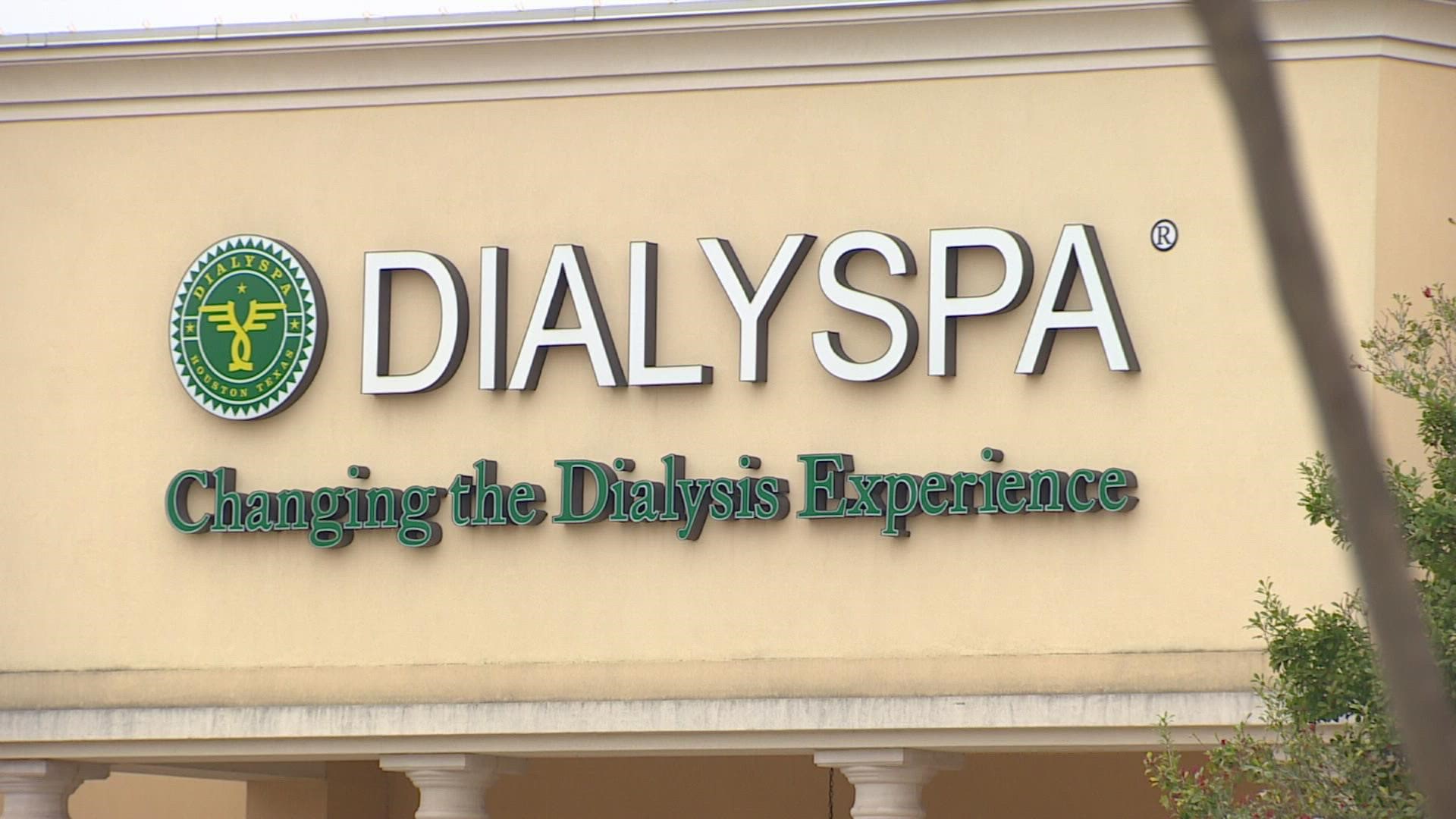HOUSTON — A supply shortage due to the COVID-19 pandemic is putting some of the population's most vulnerable at risk.
Kidney patients who rely on dialysis say their treatments are being cut short. Without that therapy, they could get sick or die.
Lowery Nabb said he has been getting routine renal replacement therapy for seven years.
“I was in the fourth quarter of kidney failure. So, the only thing that keep me living was to take dialysis three days a week,” Nabb said.
But this week, he said clinicians at Dialyspa told him his treatment is being shortened.
“They've cut me down to three (hours), and they claim they may have to cut me down to two,” Nabb said.
The 80-year-old, his wife and daughter, who take him to therapy, were caught off guard.
“I had no idea this was coming,” Nabb said.
Nabb is not the only patient in the Houston area experiencing shorter treatment times.
Amesha Williams, who started dialysis more than a decade ago after being diagnosed with kidney disease, said this week, her treatment at Fresenius Kidney Care ended sooner than expected.
“I go three, three hours and 15 minutes. That's my technical treatment time. Today, I only did a two-hour treatment, because they didn't have supplies,” Williams said.
Willams said the clinic handed her an emergency treatment packet, which included her physician’s prescription so that she could begin looking for dialysis somewhere else.
“This is scary. When you find out in the spur of the moment, you're like, oh, my God, where am I going to go? What am I going to do,” Williams said.
KHOU 11 Investigates reached out to Fresenius Medical Care North America, the company that distributes supplies to more than 2,600 dialysis centers across the country, including the ones where Williams and Nabb receive treatment. A spokesperson confirmed they are experiencing a shortage of “acid concentrate,” a fluid used in the dialysis process.
Statement of Brad Puffer, spokesperson for Fresenius Medical Care North America:
"We recognize the critical need for these supplies for patients requiring dialysis treatment. Our delivery drivers and manufacturing employees have been impacted by the latest wave of COVID-19 which has resulted in regional delivery and supply challenges. This has occurred despite a high vaccination rate among our employees and strict safety procedures in place.
"We are committed to resolving this unprecedented situation and have gone to great lengths to deliver dialysis supplies, including bringing in volunteer employees from other parts of the company and National Guard members to supplement our workforce. Our company will continue to work tirelessly to resolve these issues in order to maintain high-quality patient care."
Statement of Dr. Jeffrey Hymes, Chief Medical Officer for Fresenius Kidney Care:
“In emergency situations, it is sometimes necessary to temporarily adjust the dialysis prescription to optimally utilize available resources. These decisions are made at the direction of our patients’ treating physicians with attention to the needs of each individual. We know from our previous experience in natural disasters that these changes can be made while still meeting the standards for adequate dialysis. Our patients’ health and safety remain our top priority."
“They should have informed us. We shouldn't have had to wait until the very last minute like cutting us off of the machine to find out what was going on," Williams said.
“You can't say this one can have the right amount and this one doesn't need it. You cannot say that. That's picking who lives and who dies,” Nabb’s wife, Pauline, said.
The national supplier said it cannot give a specific timeline when things will get back to normal. But Dialyspa, the place Lowery Nabb receives treatments said it predicts it could take two to three months.

